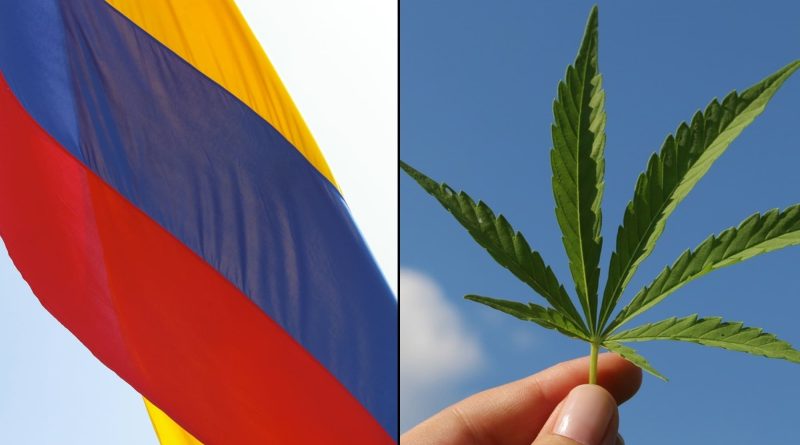Colombian Lawmakers Advance New Marijuana Legalization Bill As President Criticizes Ongoing Prohibition
From toxifillers.com with love
Colombian lawmakers have given initial approval to a bill that would nationally legalize marijuana—with a House committee taking the first step in an extensive legislative process to enact the reform.
The First Committee of the House of Representatives passed the legislation from Rep. Alejandro Ocampo last week, clearing it for consideration in the full chamber.
Because it would amend the country’s Constitution, the bill must go through a rigorous, two-year process. Both the House and Senate will need to pass it in two consecutive sessions, with a total of eight votes along the way.
President Gustavo Petro, for his part, is supportive of legalizing cannabis—and he’s put pressure on legislators to advance the reform. He said in late 2023 that lawmakers who voted to shelve a legalization bill that year only helped to perpetuate illegal drug trafficking and the violence associated with the unregulated trade.
After a recent raid of an illegal cannabis cultivation facility, Gustavo again criticized Congress for so far failing to implement a regulated market that could disrupt cartels profiting from marijuana sales.
“If Congress had legalized cannabis, we wouldn’t have a thug killing humble Colombians unnecessarily,” he said in a social media post on Tuesday.
Lawmakers nearly enacted an earlier version of the legalization measure in 2023, but it stalled out in the final stage in the Senate last session—making it so supporters had to restart the lengthy legislative process later that year.
Now that process has reset again, with a bill that would revise the Constitution to “recognize and guarantee the fundamental rights to the free development of personality, privacy, health, equality, and non-discrimination,” according to a translated summary.
“It is clear that a constitutional reform allowing medicinal, scientific, and adult uses of cannabis and its derivatives is not only pertinent but also necessary to address the contradictions and inconsistencies that persist in our legal system today,” a report on the bill submitted to the First Committee says. “Furthermore, Colombia must join the current global positions that have found, in the decriminalization and legalization of possession and consumption, much more effective strategies for addressing the so far unsuccessful fight against drugs.”
The bill that advanced in committee, as first reported by Infobae, would make it so adults would have a constitutional right to possess cannabis. Commercial sales would also be allowed, “provided that the licenses and/or authorizations granted by the competent authority are obtained, without prejudice to personal cultivation authorized by law,” the text of the legislation says.
It also stipulates that advertising marijuana products would be prohibited, “except for campaigns aimed at preventing consumption and those of an informative and educational nature in restricted media, aimed at audiences of legal age.” Public consumption would also remain banned.
The Ministry of Health and Social Protection would be responsible for developing rules to promote public safety and education around cannabis within six months of enactment of the law.
The proposal would also make it so individual municipalities could impose a tax on marijuana sales, notwithstanding the national sales tax, and revenue would support health and education efforts. Congress would play a role in overseeing territorial tax policies.
“The Colombian Congress has an invaluable opportunity to promote the comprehensive development of its territories and strengthen education, public health, and the country’s human rights approach,” the bill report says. “Regulating adult-use cannabis will not only open new avenues for economic progress in various regions but will also channel resources toward health and education systems, which are fundamental to social well-being.”
“This initiative represents a decisive step toward modernizing public policies, aligning Colombia with international trends that have proven effective in reducing crime and violence associated with the illegal drug market. By regulating adult-use cannabis, progress is being made in protecting fundamental rights and building a more just and safe environment for all Colombians.”
At a public hearing in the Senate panel in 2022 , Justice Minister Néstor Osuna said that Colombia has been the victim of “a failed war that was designed 50 years ago and, due to absurd prohibitionism, has brought us a lot of blood, armed conflict, mafias and crime.”
Also, after a visit to the US in 2023, the Colombian president recalled smelling the odor of marijuana wafting through the streets of New York City, remarking on the “enormous hypocrisy” of legal cannabis sales now taking place in the nation that launched the global drug war decades ago.
Petro also took a lead role at the Latin American and Caribbean Conference on Drugs in 2023 , noting Colombia and Mexico “are the biggest victims of this policy,” likening the drug war to “a genocide.”
In 2022, Petro delivered a speech at a meeting of the United Nations , urging member nations to fundamentally change their approaches to drug policy and disband with prohibition.
He’s also talked about the prospects of legalizing marijuana in Colombia as one means of reducing the influence of the illicit market. And he has signaled that the policy change should be followed by releasing people who are currently in prison over cannabis.
Image element courtesy of Bryan Pocius .


